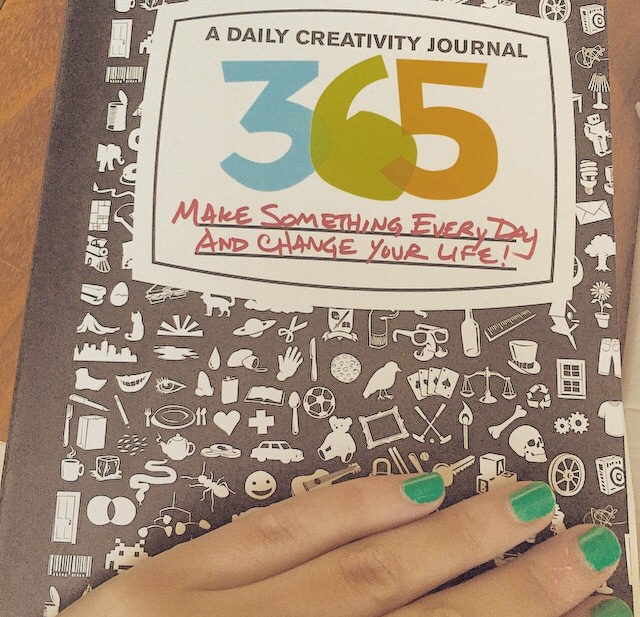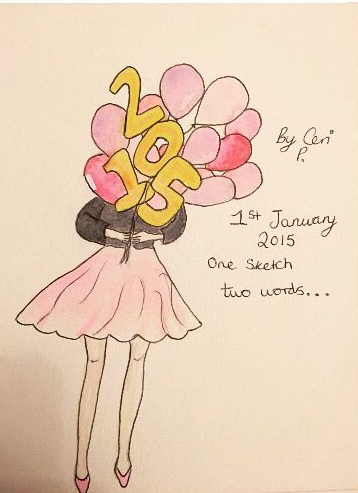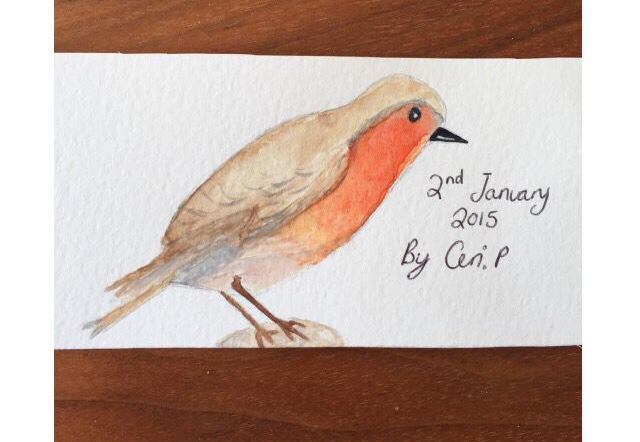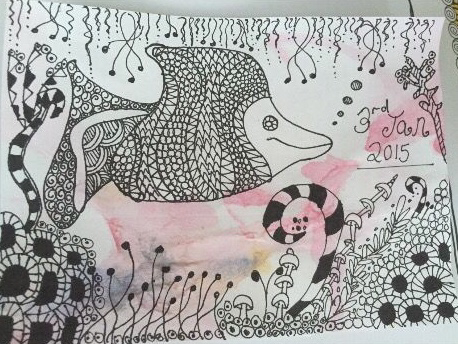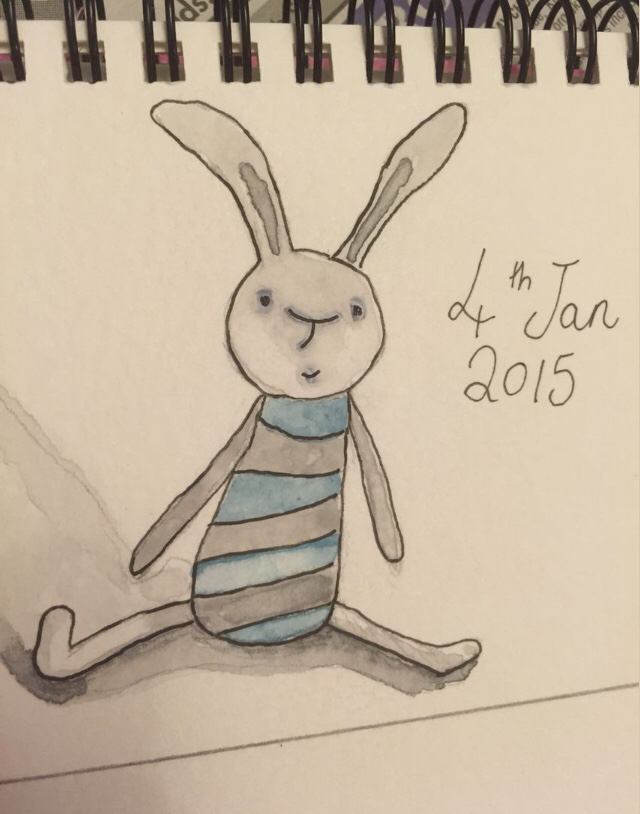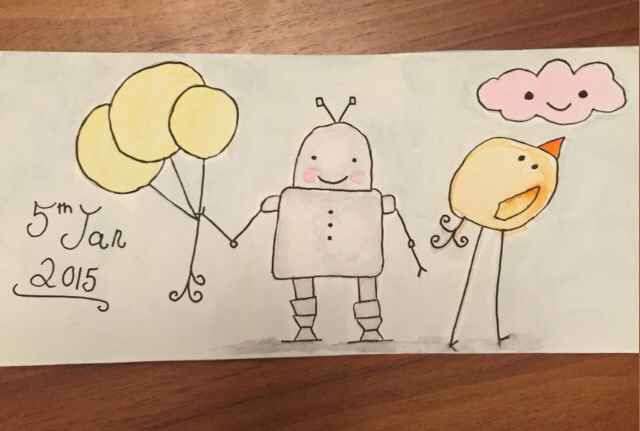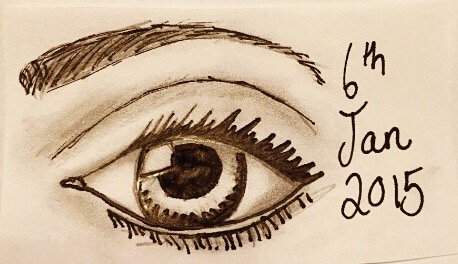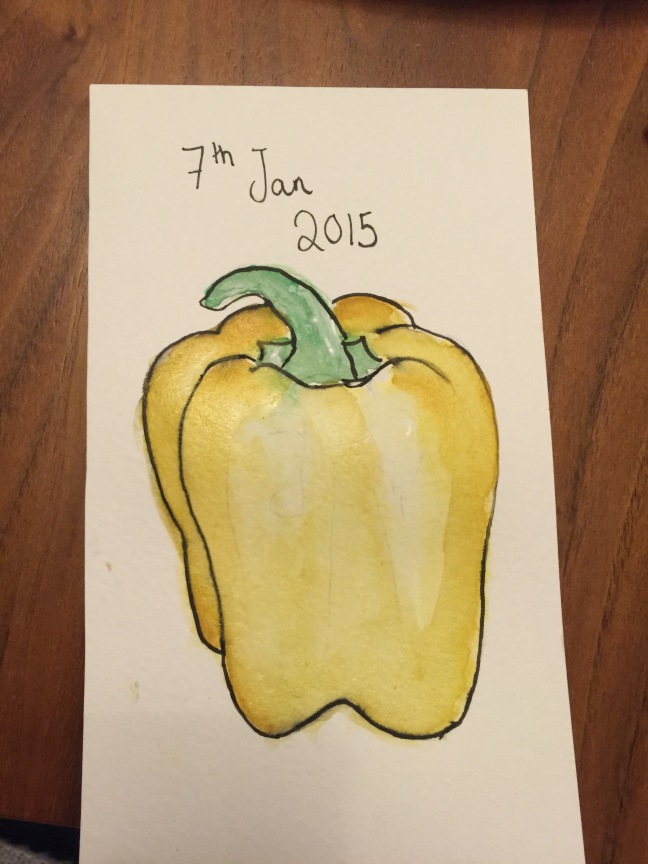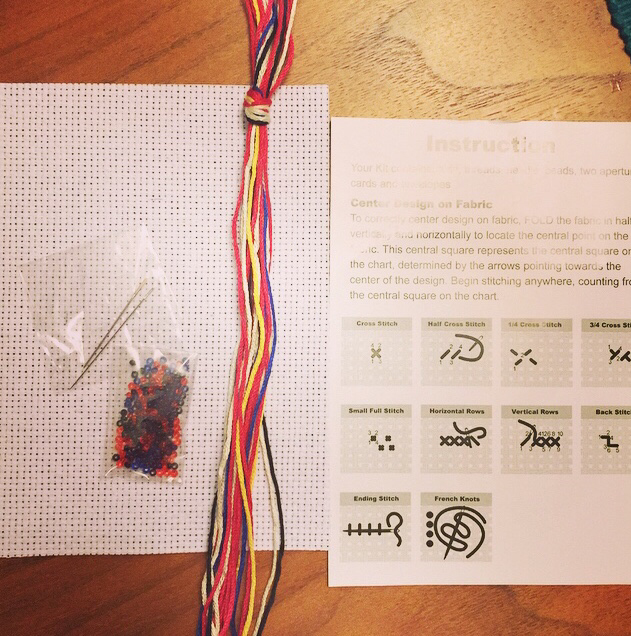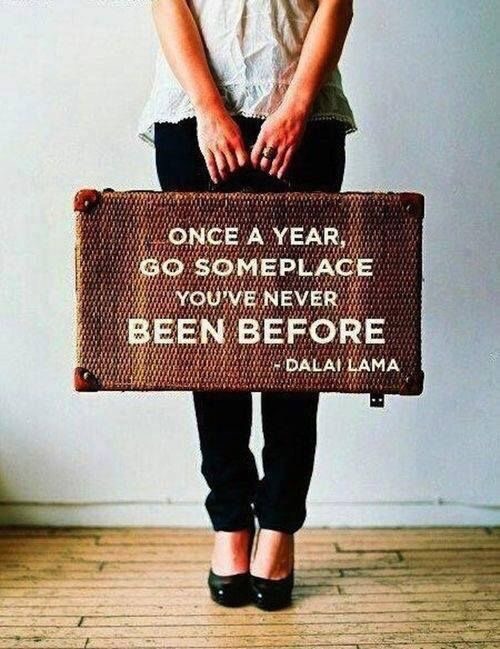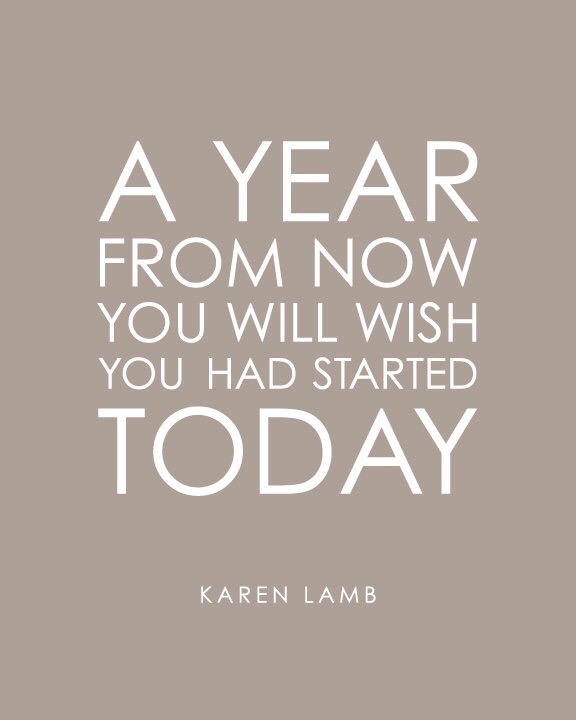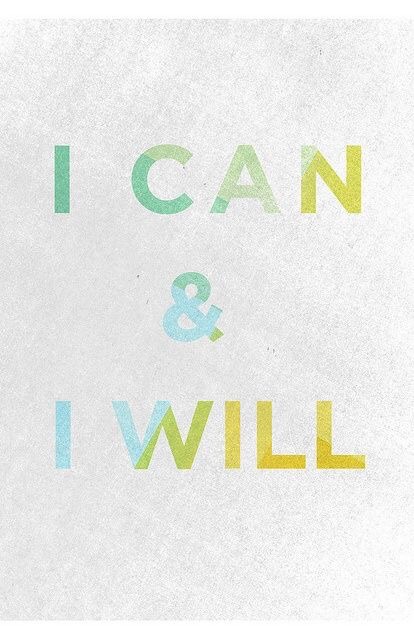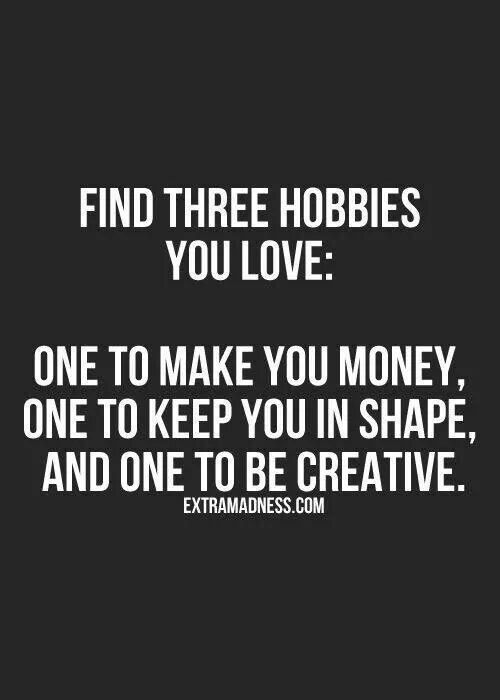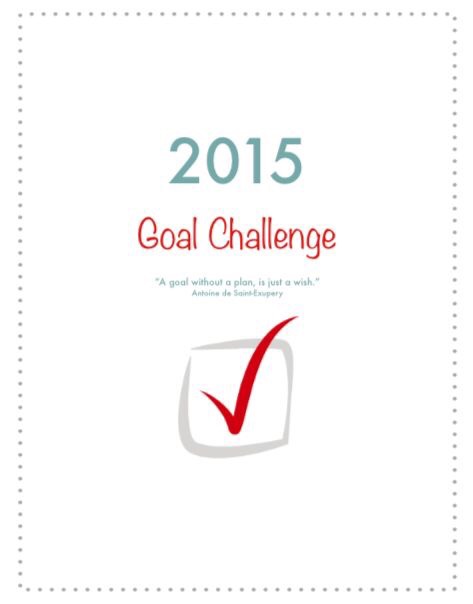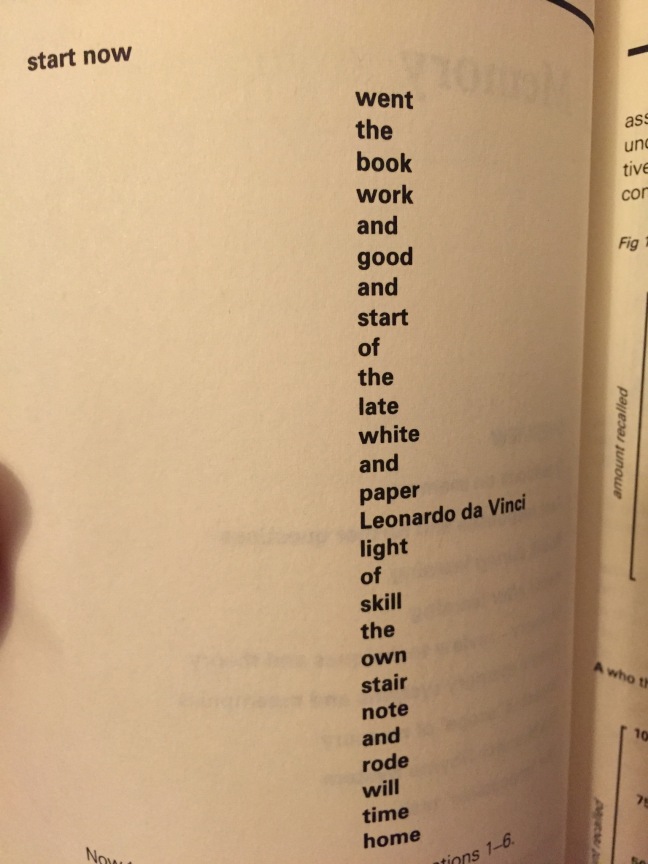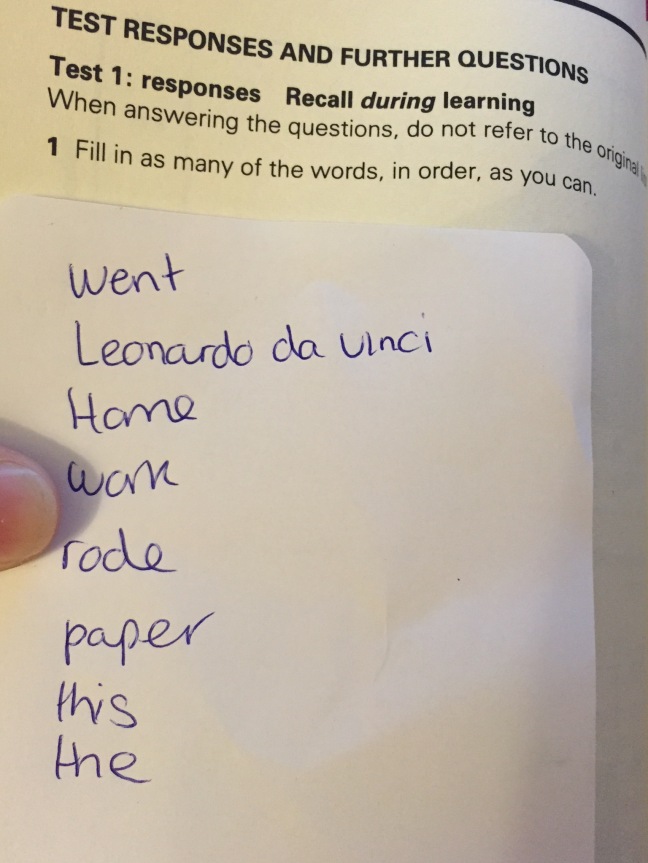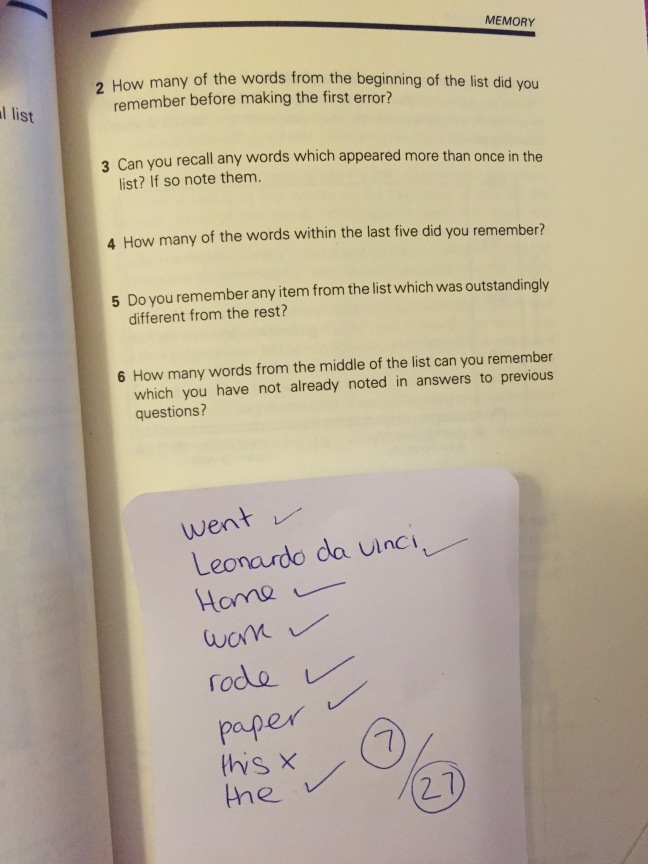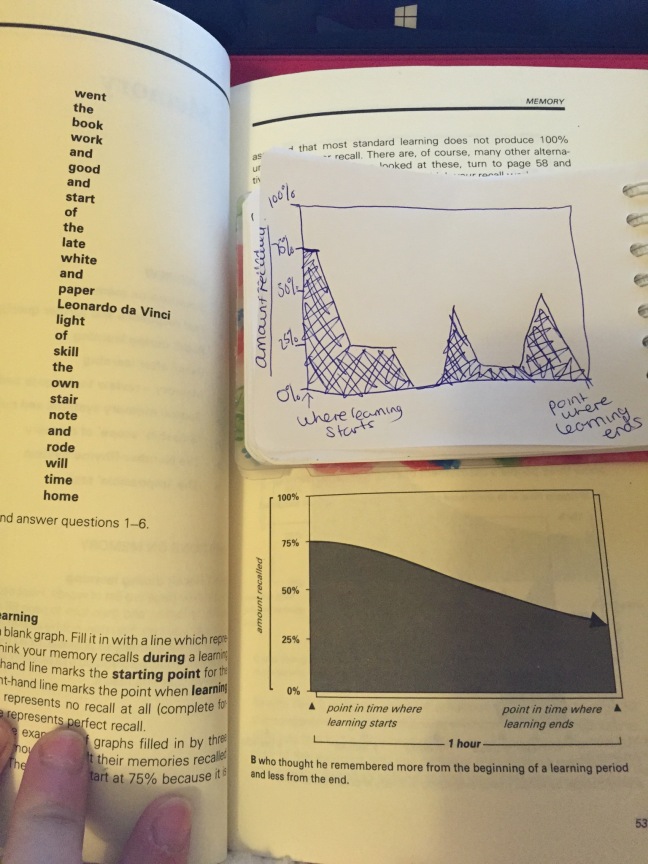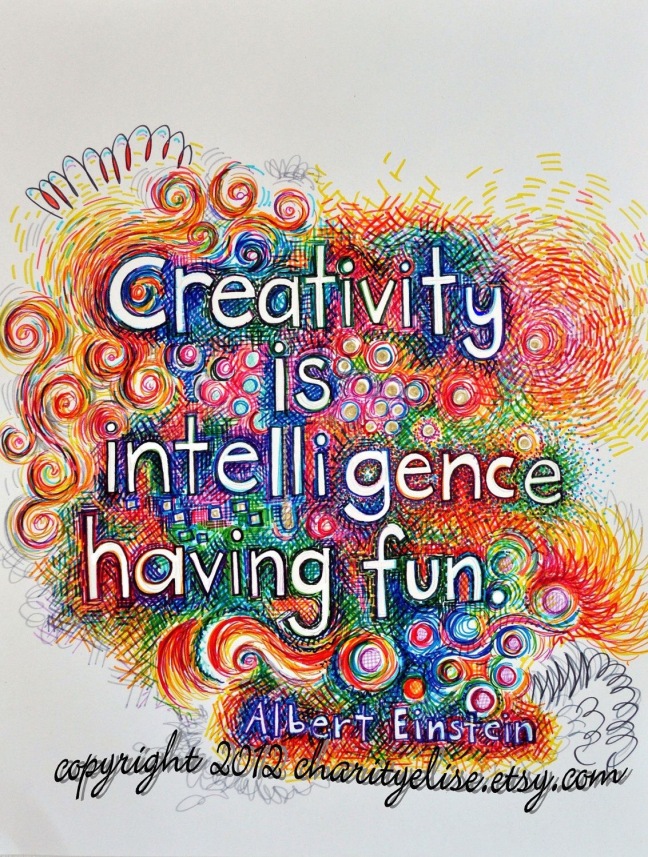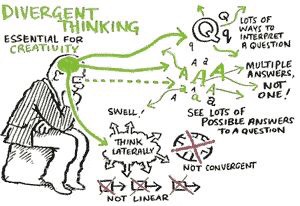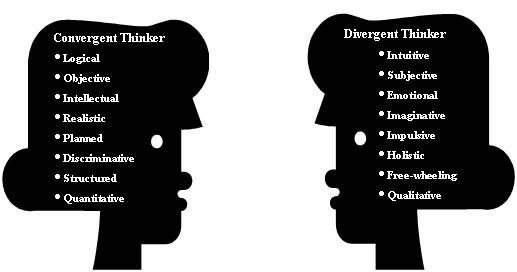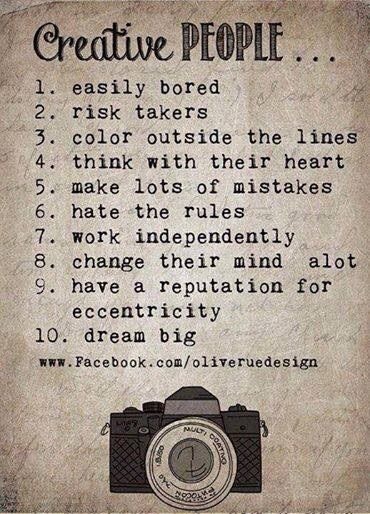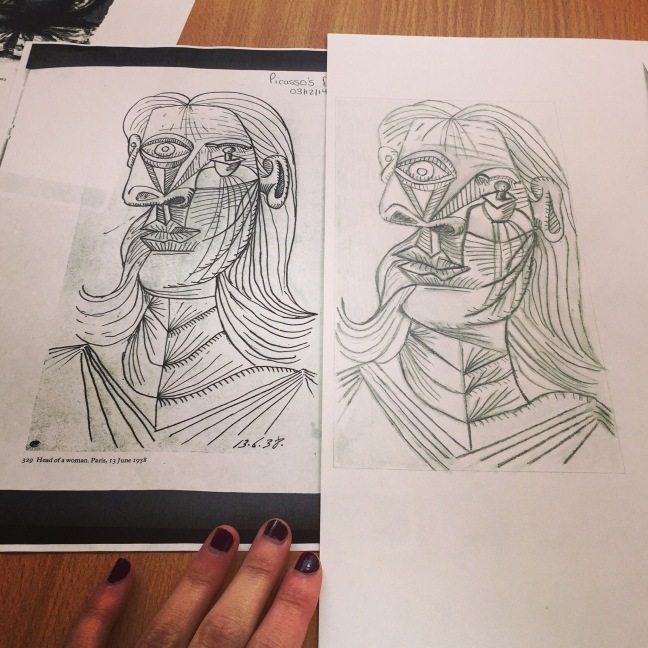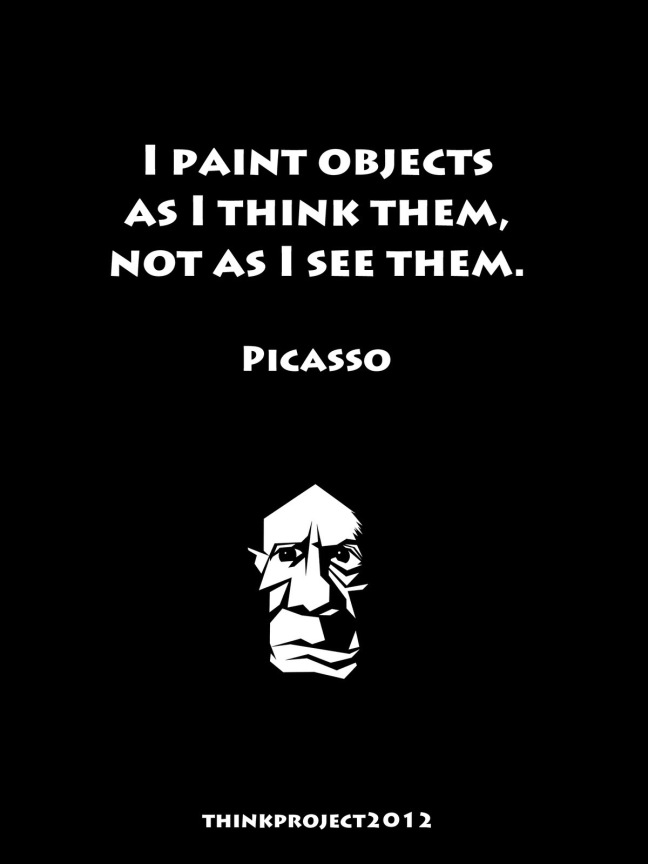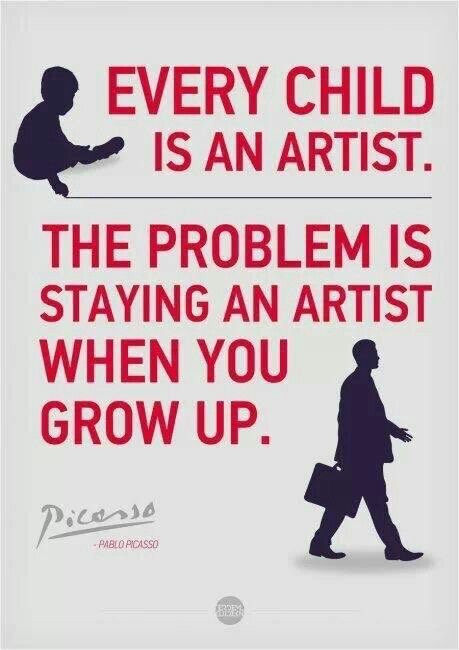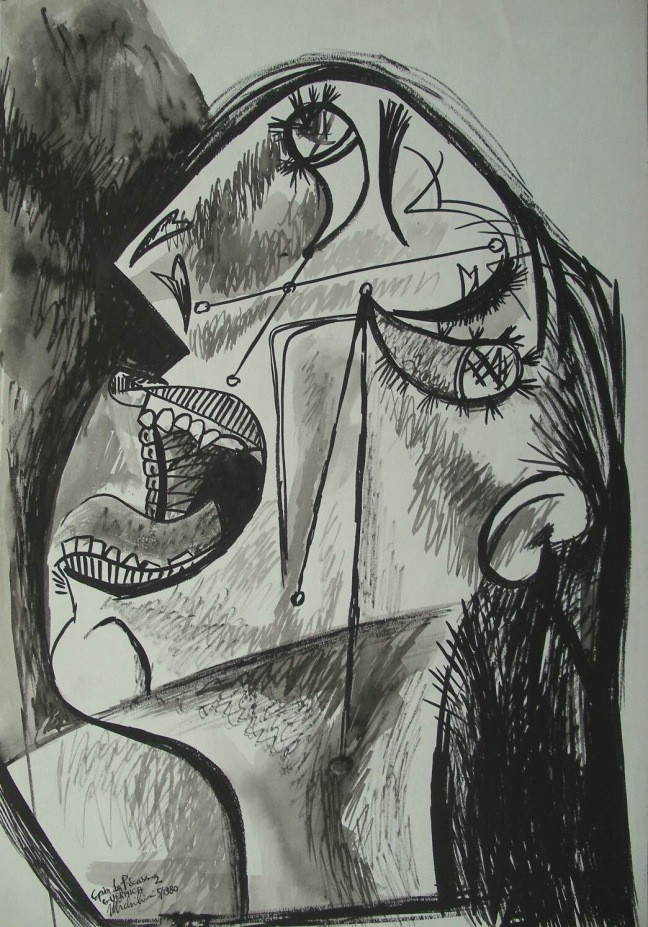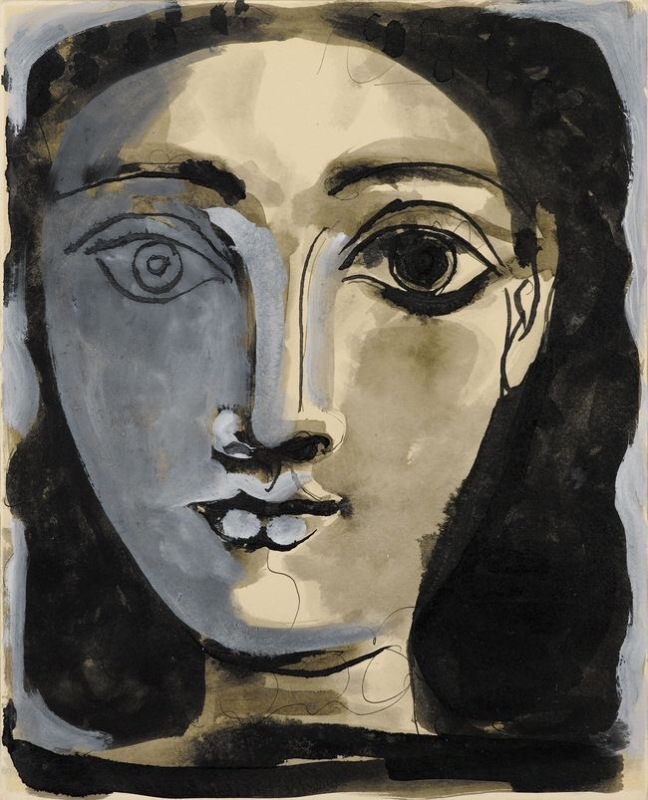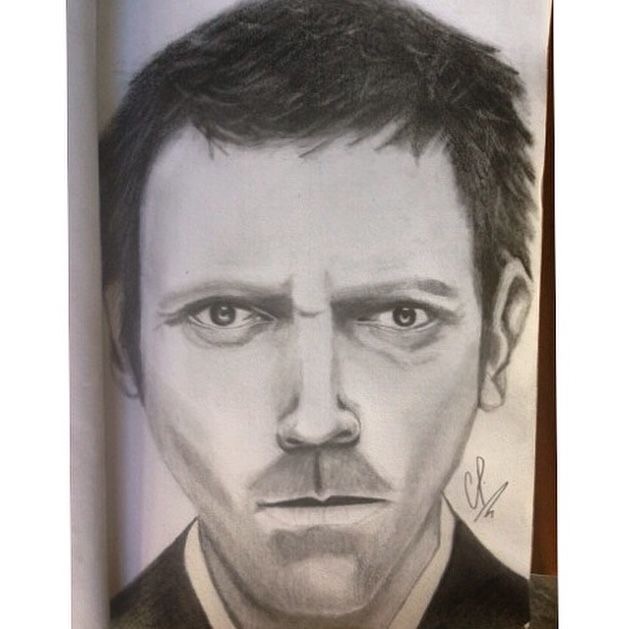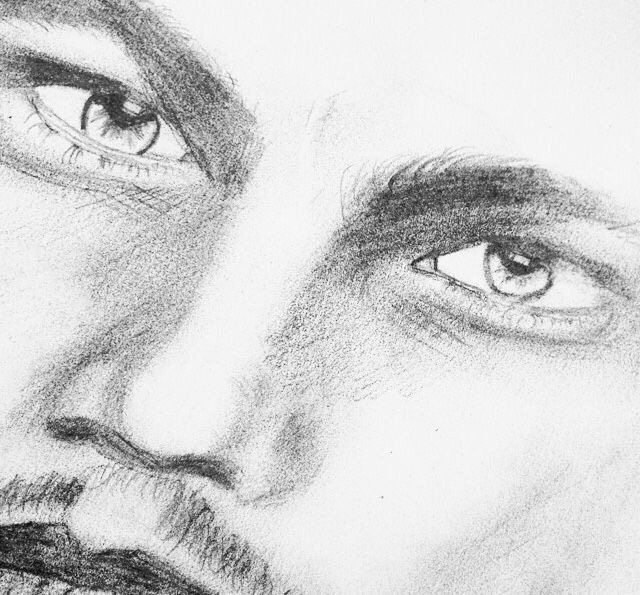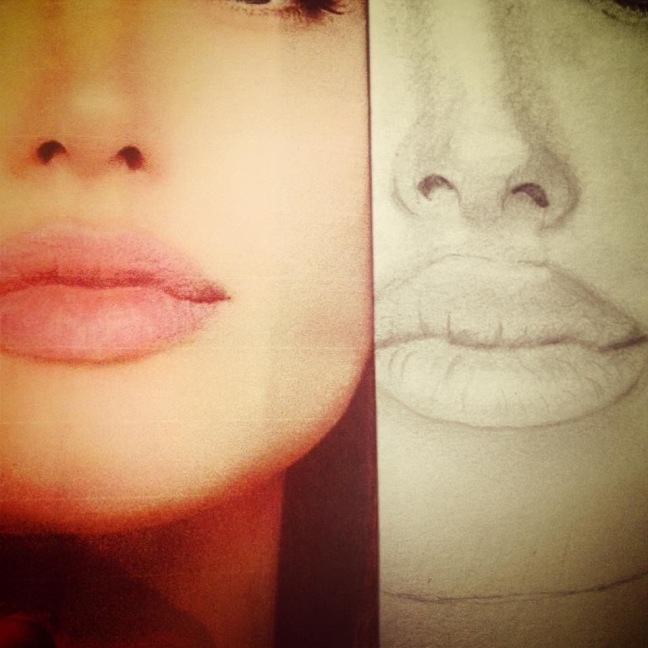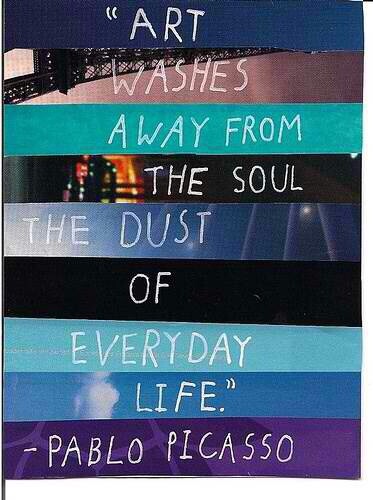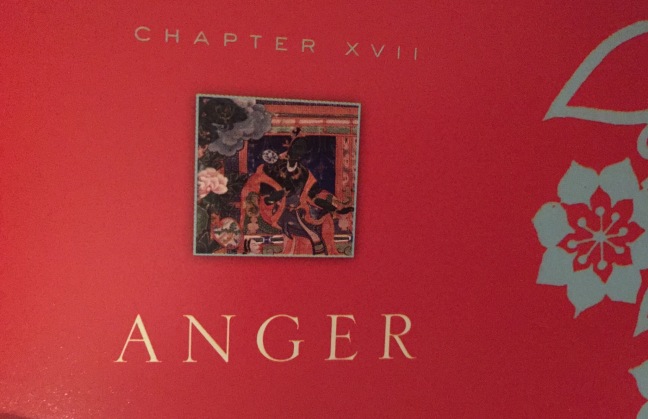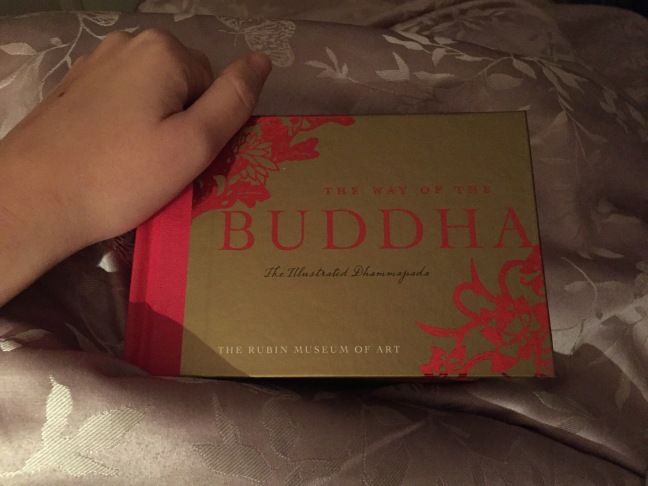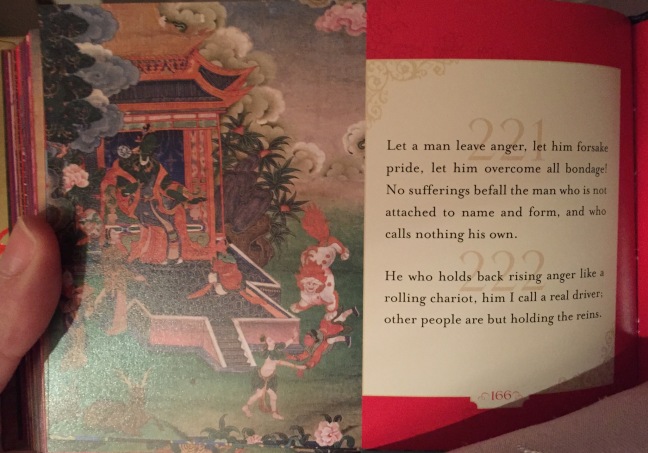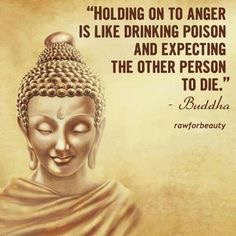Well, it’s almost been a year since I have written on this blog, I think partly because I could not think of a topic to write about and still presently struggling to think of ideas, but I’m hoping once I start writing again it will get the ideas flowing…
My last post was about my New Year’s resolutions for 2015, one of them being ‘A sketch a day’ . I managed to keep it up for about 3-5 months but not for the whole year due to illness and fatigue getting in the way but it has helped massively to improve my art skills. It also helped direct my focus to something positive and creative. I mainly use colouring books now as I find them relaxing and don’t really have to think up new ideas(which I seem to struggle with lately).
With regards to my bucket list, it is still very much in my mind and it’s what keeps me going every day. I have tried many new things this year and proud of how far I have come. I have been off sick from my job as a Nurse for nearly 18 months now, so many issues come with being off sick for this long, it affects every single part of your life; financially, socially, your career & psychologically. I have learnt many things during this time, one of them being;
You can still set small goals and achieve little ambitions and dreams, even when you think you can’t or because of illness getting in the way. I’m a great believer in helping myself as much as I possibly can and getting something good out of a bad situation.
I also realise, you have to see the positives even if everything that’s happening to your life is negative or not as you planned or wanted. If I hadn’t had this time out due to sickness, I would have never had the opportunity to do most of the things below.
Over the past 18 months;
- I have read more books
- Started yoga classes
- Achieved a Merit grade for my Art & Design Course * (which I did for half-a-day each week, for 1 year)
- Attempted to start a 3-day a week science course – lasted a few weeks as it was too much due to illness/fatigue/ memory & concentration but happy I gave it a try
- Started a 3D Ceramics Course instead (half-a-day a week – I have missed a lot of lessons over past months due to illness & need to catch up)
- Completed a 1 week Art Therapy Course
- Started volunteer work – admin work/ charity / café – but with my latest relapse of bad fatigue & illness and being bed/housebound. I’ve had a little break from it for the last few months to help me recover & rest.
- Joined a Choir
- Went to a cooking workshop – Sri Lankan vegetarian curry
- Started Piano Lessons again/ and took a piano exam
- Started learning the Ukulele
- Cooked new recipes
- Started meditating every day
- Learnt basic Spanish (on an app)
- Learning a new word each day
Most people will wonder how the hell have I managed to do all that with being off sick too?
Well the answer is; imagine someone who has no dreams, no ambitions and no motivation…. and now imagine the complete polar opposite to that. That’s what I am… for me, it takes more willpower and motivation to stop myself from doing new things and taking on too much. I am completely addicted to the feeling of achieving my ambitions and goals, no matter how small or big they are – it’s what I believe keeps us going in life, and creates a sense of excitement, achievement and happiness.
I am still working on developing skills that I have lost due to illness – which has affected my brain – including cognitive ability & memory and also physically with fatigue & general illness from being on a chemo drug for the past year, it has wiped me out completely.
I realise now, it will take time to get back to where I once was. I have changed a lot since a year ago, my mind-set and attitude to life has changed. This time last year, I frantically made lists of things to do, to try get me back to work and to have some sort of life again, feeling the pressure against time to get back to it. I was always trying too hard, and resisting what was my current situation, not realising I was actually setting myself back further by not listening to my body and instead listening to my erratic mind.
I’ve always been such an ambitious person and have loved achieving things, it’s just part of my personality, I never used to rest much and was always ‘on the go’. It’s been hard to adjust from the person who I once was to the person I am now. Having bad fatigue and illness after such little activities such as; having a shower or going food shopping would have been unimaginable to the person I was before – I could once run 10 miles and still not feel tired. To go from a person who was dedicated and spent years through my career helping others in need to then being the one that needing to be helped – I just could not accept this at first and still find it hard. The whole process has been difficult to accept, realising that something is not in your control and even worse because of how much it is impacting on your life. Despite this, I feel so much stronger and wiser, beyond my years. It has really put things into perspective, and has shown me what’s really important in life, and how you can achieve happiness purely from inner peace and concentrating on the little things. It’s made me feel so grateful for all the things I used to take for granted on a daily basis. I now look at the world in a completely different way – for this I am very thankful for.
I am finally learning to pace myself, and follow a written schedule that includes activities and ‘rest time’ , it’s incredibly hard for me but I’m hoping if I carry on how I am now, I will learn to live the best I can with my illness and to keep progressing to make improvements. It will just take time, I’ve come to terms with the fact that my illness is chronic/long-term and I may never get back to the person I was before but I now realise this does not matter, it’s the present time that is to be focused on and looking ahead. There is no point wasting energy mourning the past and what I’ve lost in life, and instead I choose to use all my power and energy to healing myself, and getting one step closer to getting my life back.
Thanks for reading!
Ceri 🙂
